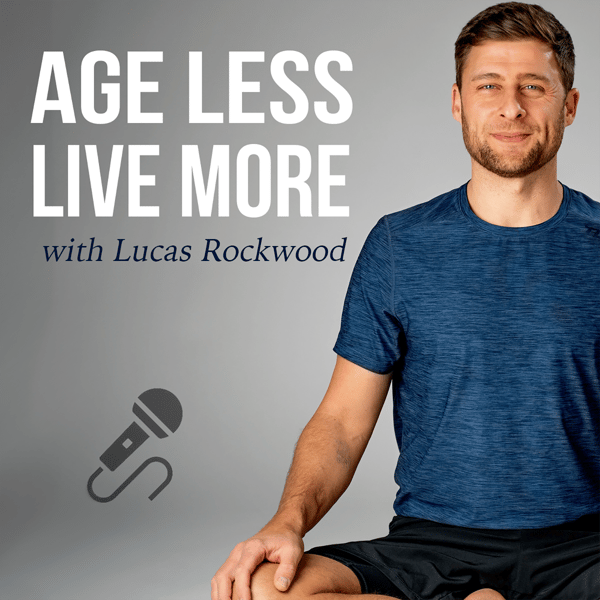570: The Science of Trauma Recovery with Jamie Mustard
Age Less / Live More
Lucas Rockwood
4.8 • 1.1K Ratings
🗓️ 31 May 2023
⏱️ 45 minutes
🧾️ Download transcript
Summary
Some medical professionals feel it’s more accurate to classify post traumatic stress disorder (PTSD) as a neural injury (PTSI) – not a disorder. Dr. Eugene Lipov developed a local anesthesia treatment targeting the stellate ganglion in the bottom of the cervical spine. This treatment has been approved for chronic pain and is being used now for trauma with promising results. On this week’s podcast, you’ll learn from a success story patient:
- How trauma change our nervous system and brain activity
- Why a prolonged allostatic load (stress) can create a trauma-like injury in the body
- How trauma injuries can be visibly seen in FMRI scans
Links
ABOUT OUR GUEST
Jamie is the author of the books, The Iconists and The Invisible Machine. The book is centered around the science of Trauma Recovery.
Like the Show?
- Leave us a review
- Check out our YouTube channel
- Visit www.yogabody.com
Transcript
Click on a timestamp to play from that location
| 0:00.0 | When I was a teenager I used to do a lot of work with animals, horses and donkeys and dogs |
| 0:07.6 | even goats and on Wednesday nights I used to go with a friend and volunteer at a dog shelter |
| 0:12.4 | for a very brief period of time. We would go walk dogs in the shelter and then go eat burritos. |
| 0:18.0 | Admittedly I think the burritos was the most important part of it for us. |
| 0:21.5 | In any case there were dogs at the dog shelter as you can imagine that had been neglected |
| 0:25.4 | and abused and as soon as I say that you know what a dog like that acts like the dog grits |
| 0:31.7 | their teeth, their timid, their wine, they sometimes bark, sometimes they're dangerous, sometimes |
| 0:36.0 | they'll bite you. They're affected and it's very clear. These dogs have not been socialized to |
| 0:41.7 | understand PTSD, they don't know what that means, they don't have a DSM guide to dog psychology. |
| 0:49.3 | This is just a state of being that all of us are aware of and humans get into these states as well |
| 0:55.0 | and there are different terms and different psychological approaches. PTSD is often used post-traumatic |
| 1:00.8 | stress disorder to refer to a whole series of conditions that happen after experiencing or |
| 1:07.1 | nearly experiencing death, whether that's violence or war, whether that's any kind of death or |
| 1:13.4 | violence. However, there is another term called post-traumatic stress injury. The idea that |
| 1:19.6 | our brain, our nervous system in fact is actually injured and perhaps like that dog, many of us |
| 1:25.2 | are unable to control our behavior and it is not something that's learned, it's not something |
| 1:30.6 | that is necessarily in reaction to something socialized or a social construct or a learned behavior. |
| 1:37.2 | There's no kind of framework for it, it is something that is visceral for people. I don't know |
| 1:42.4 | if this is true but I'm very interested. We'll dive deep on this week's podcast including some |
| 1:46.9 | potential ways to treat this if you or someone you love is suffering from trauma and overcoming |
| 1:52.5 | trauma. If you're new here it's the Lucas Rockwood show, I'm a yoga teacher and trainer, |
| 1:56.2 | I'm a serial entrepreneur, I'm the father of three kids but firstly I'm a student so I use this |
... |
Transcript will be available on the free plan in -662 days. Upgrade to see the full transcript now.
Disclaimer: The podcast and artwork embedded on this page are from Lucas Rockwood, and are the property of its owner and not affiliated with or endorsed by Tapesearch.
Generated transcripts are the property of Lucas Rockwood and are distributed freely under the Fair Use doctrine. Transcripts generated by Tapesearch are not guaranteed to be accurate.
Copyright © Tapesearch 2025.

